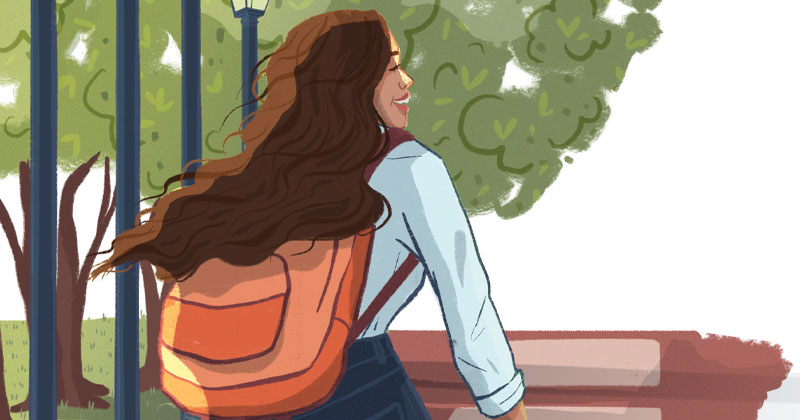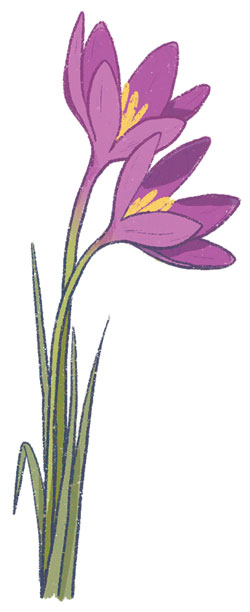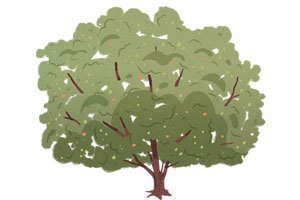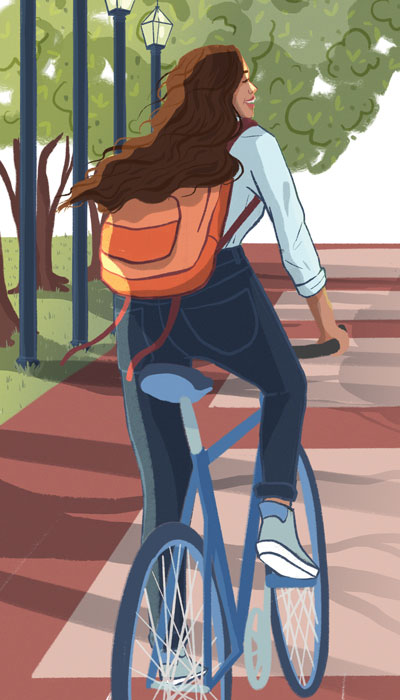


Asserting her power
September 02, 2022
One mild evening in the gritty Pakistan neighborhood where she grew up, 16-year-old Tamanna Salehi did something vulgar and unthinkable for a young woman: She rode a bicycle.
This was not her first offense. Salehi often paid her little brother 20 rupees, the equivalent of 26 cents, to borrow his red set of wheels. On those occasions, she made sure not to violate cultural norms too egregiously, staying on her street and never losing sight of the modest home where she shared one bedroom with her parents and three siblings.
But this day was different.
As Salehi pedaled, a neighborhood woman scolded her for careening down this path of certain moral decay and social ignominy. And she instructed the teenager to go back inside and put on a longer head scarf, one that would drape past her knees in a show of modesty and submission to Allah.
“So I rode even farther,” says Salehi, now 21, giggling as she recalls disappearing onto a neighboring street. “I wanted to prove to this woman that I can do this—I am doing this—and nothing bad is going to happen.”
Resistance, you could say, is built into her DNA.
When I'm riding, I feel free. I feel like myself.

In 1998, Salehi’s parents escaped the terror of the extremist Taliban movement by fleeing their native Afghanistan. They resettled in a southwestern area of Pakistan populated by fellow displaced Hazaras, members of a Persian-speaking minority community ruthlessly targeted by the militant group. Although they never studied beyond fifth grade themselves, the couple valued education—even for young girls who were routinely denied access. After starting a family, Salehi’s father committed to saving for his children’s school tuition but, since he could not work in the country without citizenship, he regularly traveled more than 2,000 miles to Kuwait, where he cooked in a restaurant for two-year stretches.
Despite this relatively progressive mission, more conservative values manifested in Salehi’s childhood home. Unlike her younger brother, she was prohibited from speaking with peers of the opposite sex, from seeing friends outside of school, even from playing outside. Her father controlled all the money in the house, often meeting requests for everyday items by dramatically shouting his thoughts on proper spending “just to show his power.” Meanwhile, her mother was not permitted to work outside the home, and “she felt dissatisfied with her life, which was so sad for me,” says Salehi, vowing, “I will not become that. I will not obey the rules of a man.”
In Pakistan, I was thinking that Afghanistan is all about war. But then I saw the beauty of Kabul... Girls and boys worked together, and young people were empowering themselves. I thought it was beautiful.
When she began asking at the age of nine to take classes in wushu, a type of martial arts, her parents said no. Their eldest daughter jumping and kicking in front of a male instructor registered as inconceivable. But after seven years and much pleading, they finally acquiesced. Members of the community were less understanding. One woman insisted the activity is not meant for “girls with no muscles and no power.” But Salehi wore black bruises on her knees with pride.
Following high school, she dreamed of something even more shocking: higher education. To achieve her goal, her refugee status left her with no choice but to resettle in Afghanistan. Neighbors once again whispered about the dangerous independence of this young girl and all the promiscuity and corruption that would inevitably befall her, should she leave her family.
"Do not think about those people," Salehi urged her worried mother. “Think about how bright my future will be: I won’t have to be a servant for a man; I can earn for myself. Think about that moment.” Her mother would take in those words and reluctantly reply, "You are right."
In Afghanistan’s capital city, Salehi faced myriad hardships, including life in a hostel with sporadically working water and 10 girls to a single room. Yet she felt invigorated by the vibrancy of her Kabul University campus, by her computer science courses and by a city that, unlike her own sleepy town, came to life daily at 5:30 a.m. Mostly, she felt intoxicated with freedom.
“In Pakistan, I was thinking that Afghanistan is all about war,” she says. “But then I saw the beauty of Kabul. I saw how hard people work, and how the girls seek education. Even though it is also an Islamic country, it was less strict—we wore jeans and smaller head scarves. Girls and boys worked together, and young people were empowering themselves and creating chances for others to do the same. I thought it was beautiful.”
As part of her own mission toward empowerment, Salehi pursued hobbies, like skateboarding and dancing to hip hop music. And, with her hijab haphazardly tucked beneath a metallic blue helmet, she took her favorite, formerly taboo pastime to a new level: She joined a club for young people interested in learning bicycle tricks. In one photo she saves on her phone, she wears a plaid shirt and jeans while standing atop a red bike. One sneaker is perched on the handlebars, the other is planted just in front of the saddle, and her arms are outstretched for balance, the hint of a smile playing across her face.
“When I’m riding, I feel free,” she says. “I feel like myself.”

In November of 2020, an act of terrorism sent shockwaves through this blissful new reality. The Taliban blasted the gate of Kabul University with an explosive device, allowing three gunmen to kill 32 people and wound 50 more more. Salehi had been preparing to leave for campus when she took the warning call from a friend.
The institution closed its doors for one week and, when classes resumed, undeterred scholars eagerly filed onto the geranium and cherry blossom-lined paths of campus, Salehi included. For a time, attending classes felt “a little scary,” she admits, noting that protocol for handling a future attack became part of her regular curriculum. But the experience made Salehi feel something else, too: powerful. The Taliban, she believes, fear educated women: “I told myself: I am so lucky that I am able to come to this classroom.”
A country that developed over 20 years--a country that was working--a bunch of crazy people can just come and take it? It all happened so quickly.
The fortunate feeling was short-lived. Last August, insurgents once again entered the capital. Only this time, they took control of the city, a reality Salehi never imagined possible.
“I woke up that day and went shopping,” she says. “I even went to a restaurant with a friend. Later, everyone started saying the Taliban were all around Kabul, and on social media you saw people closing their shops. This wasn’t making any sense. A country that developed over 20 years—a country that was working—a bunch of crazy people can just come and take it? It all happened so quickly.”
Unable to return to her hostel for fear of an attack, Salehi stayed with an uncle. From the window of his home, she processed a jarring scene: disheveled, gun-wielding members of the Taliban driving in confiscated police cars, the vehicles “that were supposed to protect us, that were supposed to protect our freedom.”
She had one glimmer of hope.
Looking for ways to make her education more affordable, Salehi had applied for a scholarship to the Asian University for Women in Bangladesh. At the time of the attack, she was mere weeks away from a transfer. This new academic institution, she knew, was working on a plan to get their incoming Afghan students safely out of the country. But while her peers had their passports ready to go, Salehi’s was still being processed.
I am going to find myself here. I am going to improve what is already inside of me.

After much back-and-forth, representatives from AUW ultimately decided there was nothing they could do. The risk of trying to get through a Taliban checkpoint without proper forms was too great; they would have to leave Salehi behind. For three days, as her classmates circled Kabul Airport on chartered buses, praying for a path through chaos on the ground, she sat at home, pleading her case to AUW: “Oh, God. I can’t stay here. This is my only hope.”
Then came an answer to prayer.
Representatives from the school relented, alerting Salehi she could take the risk after all. It was 4:30 p.m., and one of the buses would pick her up in 30 minutes for yet another attempt at escape. She packed only her phone, important travel documents and, because she was on her period at the time, menstrual pads. Her hijab, she made sure, covered everything but her eyes.
Salehi and the others spent the night on their respective buses, parked outside of an airport gate. At first, the sound of nearby gunfire led to screaming from the women, but eventually the noise simply “became normal for us,” she says. Just before dawn, the Taliban finally let the women through, but they scolded them as they passed: Good Muslim girls would never abandon their country. You don’t need independence; you need a man.
The Taliban, she believes, fear educated women. "I told myself, I am so lucky that I am able to come to this classroom."
Leveraging one final indignity, the guards forced Salehi to leave her menstrual pads behind. Considering everything she’d abandoned for this chance at a future, this final humiliation felt trivial. But it was also emblematic of the moment: men who feared and detested her womanhood weaponizing a symbol of this womanhood in the most empowered yet vulnerable hour of her life. They would not break her spirit.
“I welcome hardships in my life,” she says. “I like taking risks, and I like danger, because I know how strong I will be in the face of obstacles.”
Since arriving at UD, Salehi has taken part in a self-defense class put on by the University Police Department, affording an opportunity to reflect on how far she’s come since her days in Pakistan, when her passion for fighting felt illicit. Neighbors from her hometown who once lamented her independence also marvel at her unlikely journey.
“They are happy I’m here,” she says. “People who called me a bad person are now saying how lucky I am, and how wonderful it is that I’m in a position to maybe help my family.”
Salehi hopes to prove them right by working diligently at UD, potentially in a public health program. To arrive at her classes, naturally, she will ride a bicycle.
While she respects those in her cohort who feel differently, she has decided to shed her hijab, believing the head scarf not to be a legitimate requirement of Islam, but a misguided directive imposed by those who’ve misinterpreted the faith.
And as she rides to campus, potentially pulling a trick or two along the way, Salehi will will feels the wind in her hair— and all the endless possibilities at her fingertips.
“I am going to find myself here,” she says, a hint of a smile beginning to play across her face. “I am going to improve what is already inside of me.”
Contact Us
Have a UDaily story idea?
Contact us at ocm@udel.edu
Members of the press
Contact us at 302-831-NEWS or visit the Media Relations website


